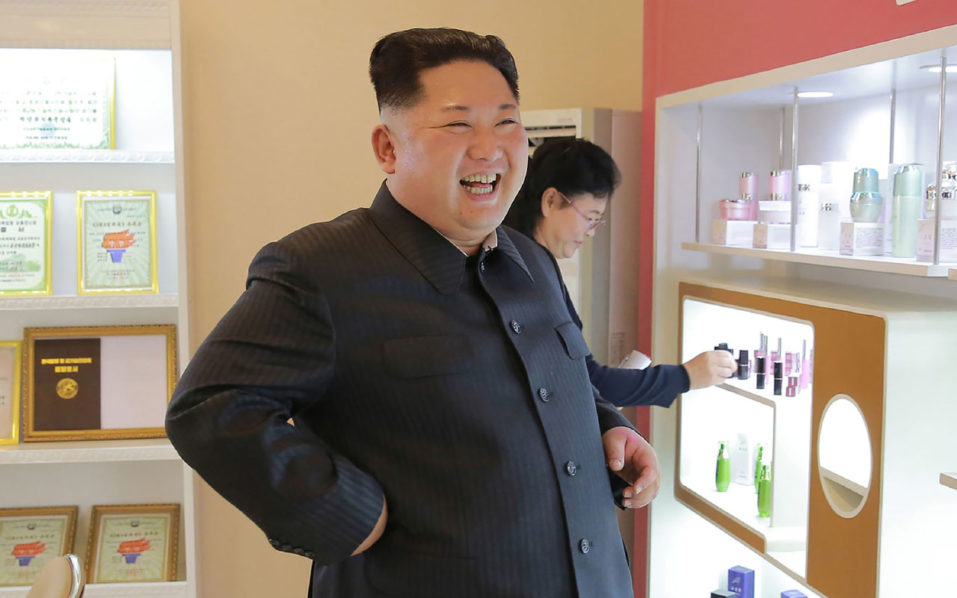
The UN Security Council will vote Friday on a US-drafted resolution ramping up sanctions on North Korea by restricting oil supplies vital for Pyongyang’s missile and nuclear programs.
The United States presented the draft resolution Thursday following negotiations with China, Pyongyang’s ally, on new punitive measures in response to North Korea’s test of an intercontinental ballistic missile (ICBM) on November 28.
Two council diplomats said China, which supplies most of North Korea’s oil, would back the measure and a unanimous vote was likely at the meeting, which begins at 1:00 pm (1800 GMT).
It would be the third raft of sanctions imposed on North Korea this year and comes as the United States and North Korea are showing no signs they are willing to engage in talks to end the crisis on the Korean peninsula.
President Donald Trump has threatened to “totally destroy” North Korea if it attacks the United States while North Korea insists the world must now accept that it is a nuclear power.
The proposed resolution would ban the supply of nearly 90 percent of refined oil products to North Korea, put a cap on crude deliveries and order the repatriation of all North Korean nationals working abroad within 12 months, according to the text obtained by AFP.
Trump asked Chinese President Xi Jinping last month to cut off oil to North Korea, a move that would cripple its desperately struggling economy.
Tens of thousands of North Koreans have been sent to Russia and China to earn revenue for Pyongyang, working in what UN rights officials have described as “slave-like conditions.”
Crude oil supplies would be capped at four million barrels per year and a ceiling of 500,000 barrels of refined petroleum products including diesel and kerosene would be set for next year.
That would reduce the flow of energy supplies after the council capped deliveries of refined oil products to two million barrels a year in a previous resolution.
To prevent North Korea from circumventing sanctions, all countries would be authorized to seize, inspect, freeze and impound ships suspected of carrying illegal cargo to and from North Korea.
A total of 19 North Korean officials, most of whom work in banking, would be added to the UN sanctions blacklist along with the North Korean ministry of the people’s armed forces, which manages logistics for the army.
They will be subjected to a global visa ban and assets freeze.
– More pressure –
Since September last year, North Korea has carried out a nuclear test — its sixth — and a series of advanced missile launches which are banned under UN resolutions.
The United States has led the drive at the Security Council to tighten sanctions aimed at piling pressure on Kim Jong-Un’s regime to come to the negotiating table.
UN Secretary-General Antonio Guterres said a unanimous vote would be important to send a clear message to Pyongyang that it must abandon its ambition to develop nuclear weapons.
Speaking in The Hague, Guterres said the “unity of the council is necessary to create an opportunity for diplomatic engagement for the de-nuclearization to be achieved through peaceful means.”
Last week, US Secretary of State Rex Tillerson told the council that the “pressure campaign must and will continue until denuclearization is achieved,” as he backtracked from his offer to hold unconditional talks with Pyongyang.
French Ambassador Francois Delattre said the new sanctions would increase pressure on Pyongyang “not for the sake of pressure, but in order to push for a dialogue and to have better leverage for the negotiations and the political solution we need.”
The council has also banned exports of North Korean coal, iron, lead, textiles and seafood, and restricted joint ventures.
The United States separately asked the council to blacklist 10 ships, including two Hong Kong-flagged vessels, for carrying banned cargo from North Korea.
China, however, raised objections at those sanctions and the request to ban the 10 ships from ports worldwide will again be considered on December 28.
[ad unit=2]



